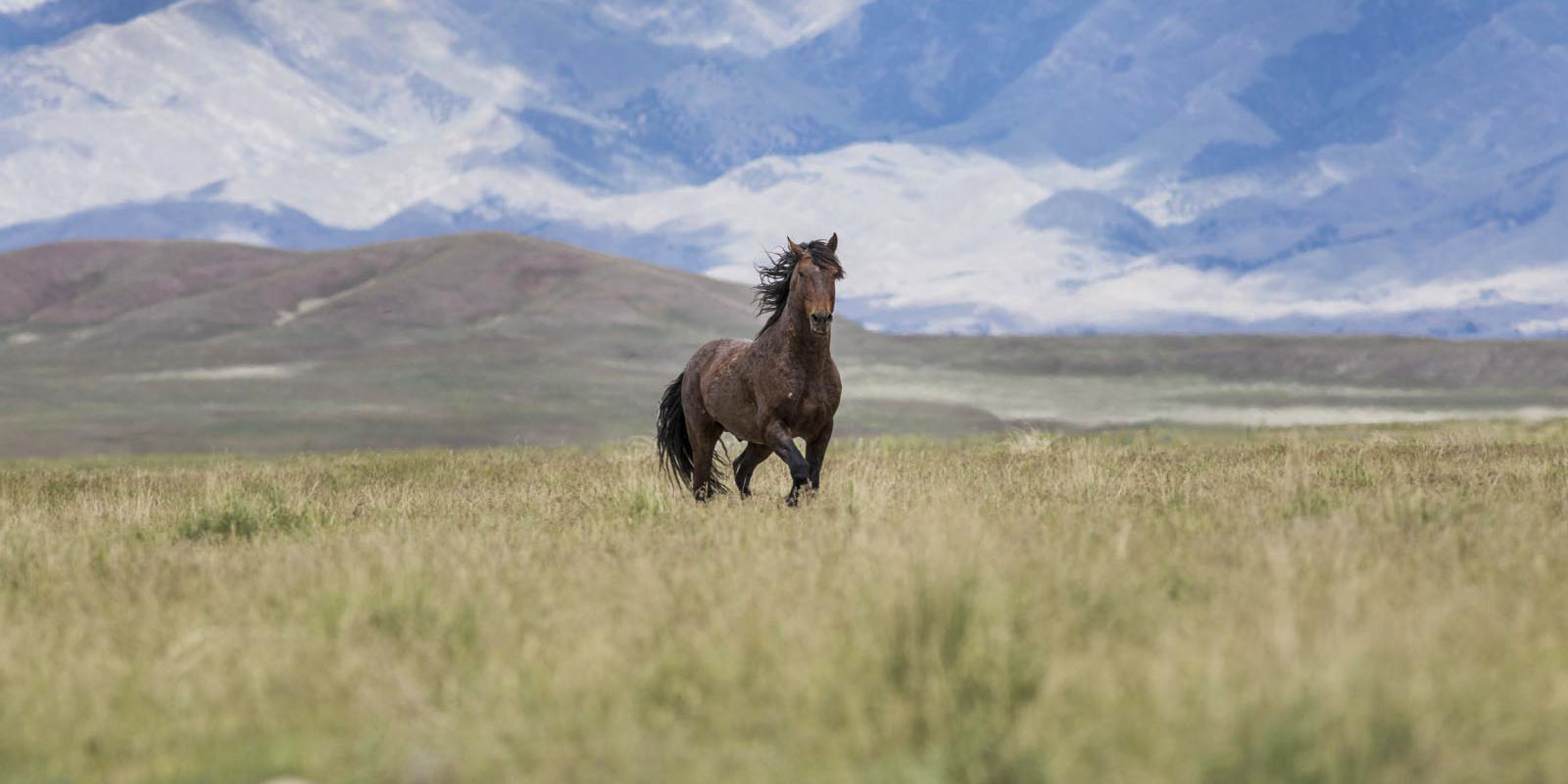September 28, 2018
Tearing foals from their mothers and running them to death in stampedes. Exposing pregnant mares to an experimental surgery where their organs are removed while the animal remains conscious. Allowing federally protected wild horses to be sold by the truckload for a pittance — with no questions asked. It’s been a busy year for the Bureau of Land Management, a federal agency that has been cooking up plans to hasten the removal of wild free-roaming horses from public lands.
Under U.S. Department of the Interior Secretary Ryan Zinke’s watch, the BLM has pushed a number of proposals based on misinformation, myths and dubious “management” practices.
In May, for example, the BLM quietly revoked a policy specifically aimed at protecting wild horses from being killed for their meat or hide. The BLM had originally adopted those guidelines after it was revealed that, from 2008 to 2012, Colorado rancher Tom Davis illegally sold roughly 1,800 mustangs into slaughter that he had purchased from the government for $10 each.
The agency’s new plan to sell off horses like hotcakes effectively consigns these animals to the slaughter pipeline. The BLM blames wild horses for damaging the landscape (livestock, which number in the millions, are evidently not a concern). Footage of the recent and relentless roundups — all with the goal of warehousing wild horses at an outrageous cost to taxpayers — has documented foals struggling to keep up with their mothers, before ultimately being separated, helicopters driving panicked mustangs into barbed wire fencing, and horses literally being run to death.
The BLM is also aggressively promoting the permanent surgical sterilization of wild horses to suppress population growth, maintaining that ripping out the ovaries of wild mares is the equivalent to spaying a cat or dog. This latest plan involves a controversial procedure known as “ovariectomy via colpotomy” that is as flawed as it is cruel. Wild horses, unlike companion animals, aren’t provided with an aseptic operating room, general anesthesia or proper recovery time.
Indeed, the National Academy of Sciences explicitly advises against this invasive, risky surgery — particularly given the nonsterile conditions on the range and the high risk of infection, prolonged bleeding or even death. Last month, Colorado State University bowed to public pressure and withdrew from the BLM’s planned ovariectomy experiments on captured wild horses. In 2016, similar plans with Oregon State University were derailed after protests and legal challenges from wild horse advocacy groups.
Undeterred, the BLM decided Sept. 12 to proceed with surgically sterilizing 100 wild mares from the Warm Springs herd in Oregon next month. Among the experiment’s gruesome objectives are to measure the pain level and death rate as a baseline for applying this sterilization method to other wild herds in the West, along with quantifying how many pregnant mares will abort their foals from the procedure.
The BLM’s reckless surgical sterilization proposals now have a troubling counterpart in legislation that passed the House of Representatives in July. Rep. Chris Stewart, a Utah Republican, added a rider to a House spending bill that calls for mass sterilizations and the creation of “same sex” herds. Senators have eschewed Congressman Stewart’s approach, which contradicts sound management principles, by omitting similar language from the upper chamber’s spending bill. Soon, legislators will work to reconcile differences between the spending bills for the upcoming fiscal year.
In a recent news interview, Secretary Zinke stated bluntly that “taxpayers spen[d] over $80 million a year on a horse program that’s been a dismal failure.” We agree. But addressing the tensions between ranchers, whose livestock enjoy virtually free grazing on public lands, and the many Americans who cherish wild horses, will not be solved by accelerating a failed and increasingly abusive management plan. It requires fundamental reform based on respect for wild equines, respect for the facts and an openness to public dialogue.


